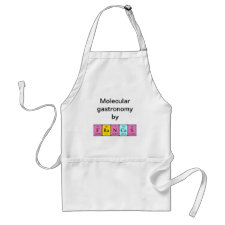
Authors: Plunkett SD, Arnold FH
Article Title: Molecularly imprinted polymers on silica: selective supports for high-performance ligand-exchange chromatography.
Publication date: 1995
Journal: Journal of Chromatography A
Volume: 708
Issue: (1)
Page numbers: 19-29.
DOI: 10.1016/0021-9673(95)00378-Z
Abstract: Thin coatings of molecularly imprinted, metal-complexing polymers have been grafted to activated silica beads suitable for high- performance liquid chromatography (HPLC). Propylmethacrylate- activated silica particles were coated by copolymerization with a metal-chelating monomer, Cu2+-[N-(4-vinylbenzyl)imino]diacetic acid, a metal-coordinating (imidazole) template, and ethylene glycol dimethacrylate. After extraction to remove the template and re- loading with metal, the composite materials re-bind the templates with which they were prepared and exhibit selectivities comparable to bulk-polymerized imprinted materials. The strong Cu2+-imidazole interaction, desirable for creating a high-fidelity imprint, leads to excessive retention in elution chromatography. By replacing the copper in the imprinted metal-complexing polymers with weaker-binding Zn2+, these novel ligand-exchange supports can effect partial to complete chromatographic separation of their bis-imidazole templates from other, highly similar imidazole-containing substrates. This ''bait-and-switch'' approach can significantly enhance the performance of molecularly imprinted materials. Scatchard plots of equilibrium binding data show a significant degree of heterogeneity in the imprinted binding sites of material prepared with a bis- imidazole template, but not with a mono-imidazole template. The best chromatographic separations are observed with small sample sizes, where the substrates occupy the strongest (highest-fidelity) sites



Join the Society for Molecular Imprinting

New items RSS feed
Sign-up for e-mail updates:
Choose between receiving an occasional newsletter or more frequent e-mail alerts.
Click here to go to the sign-up page.
Is your name elemental or peptidic? Enter your name and find out by clicking either of the buttons below!
Other products you may like:
 MIPdatabase
MIPdatabase









